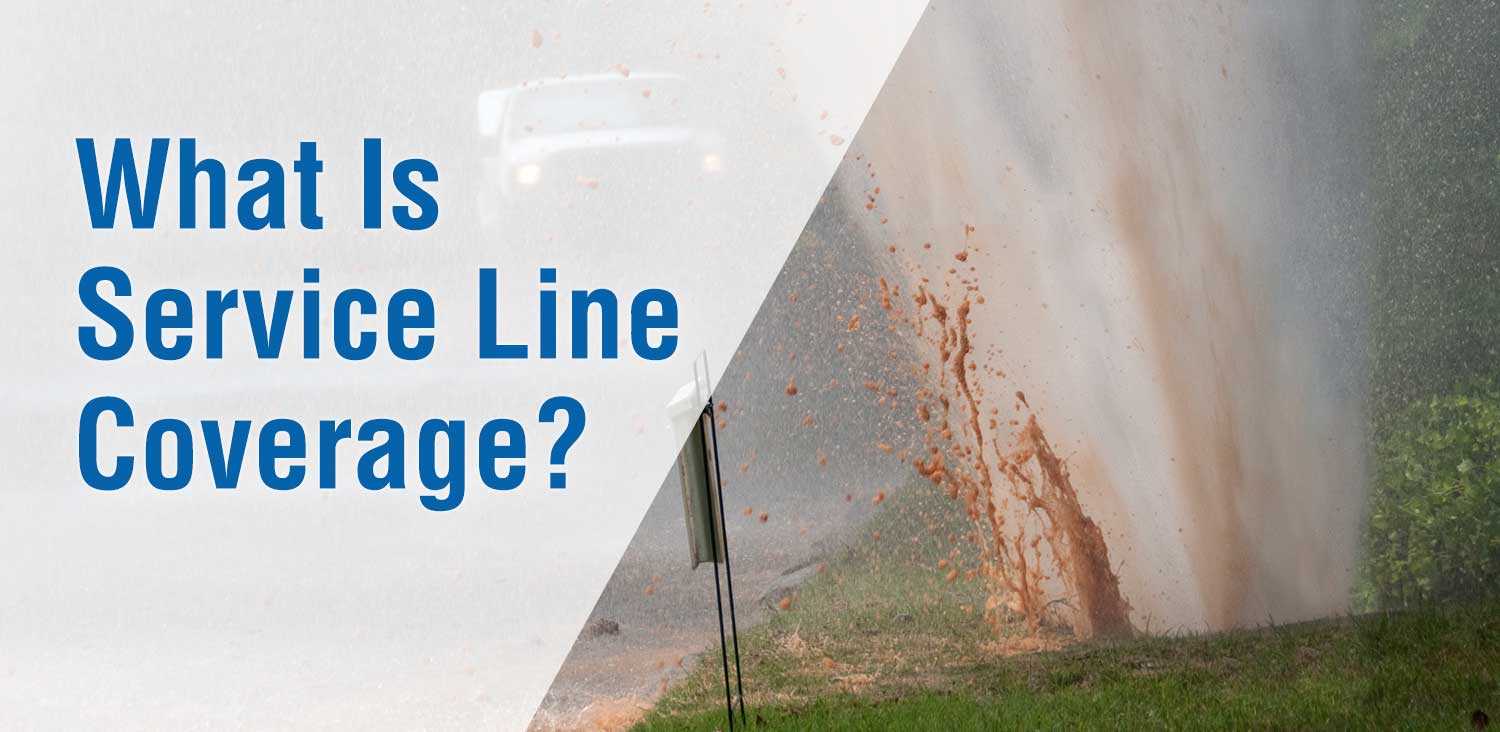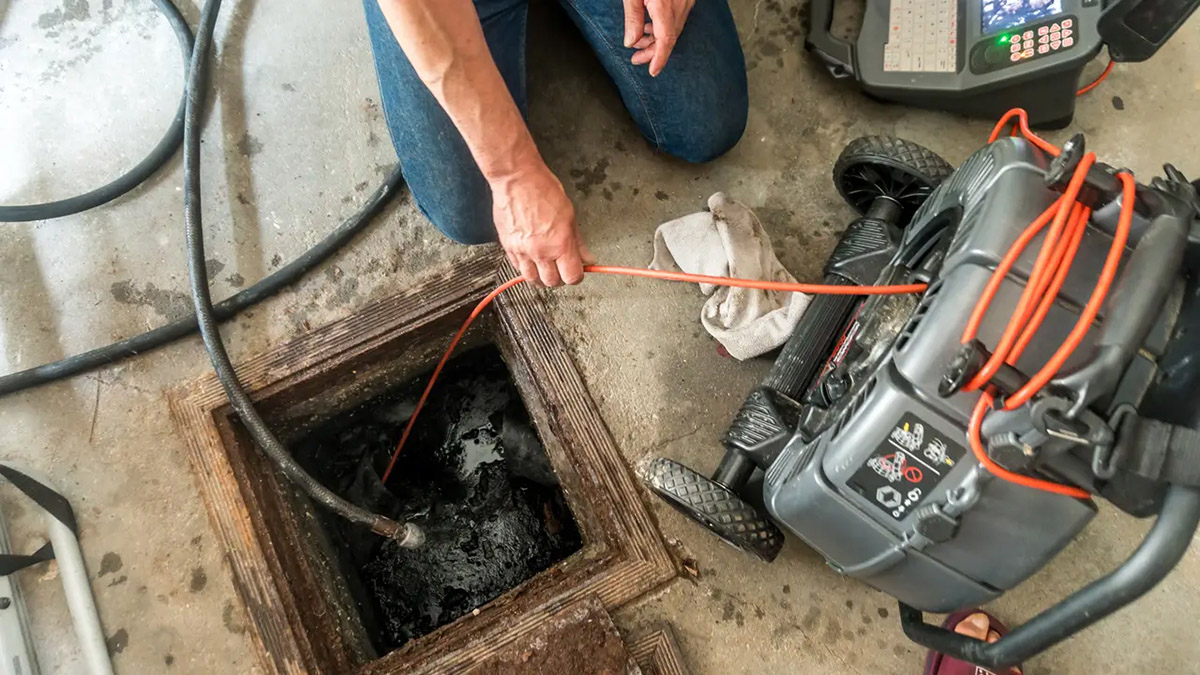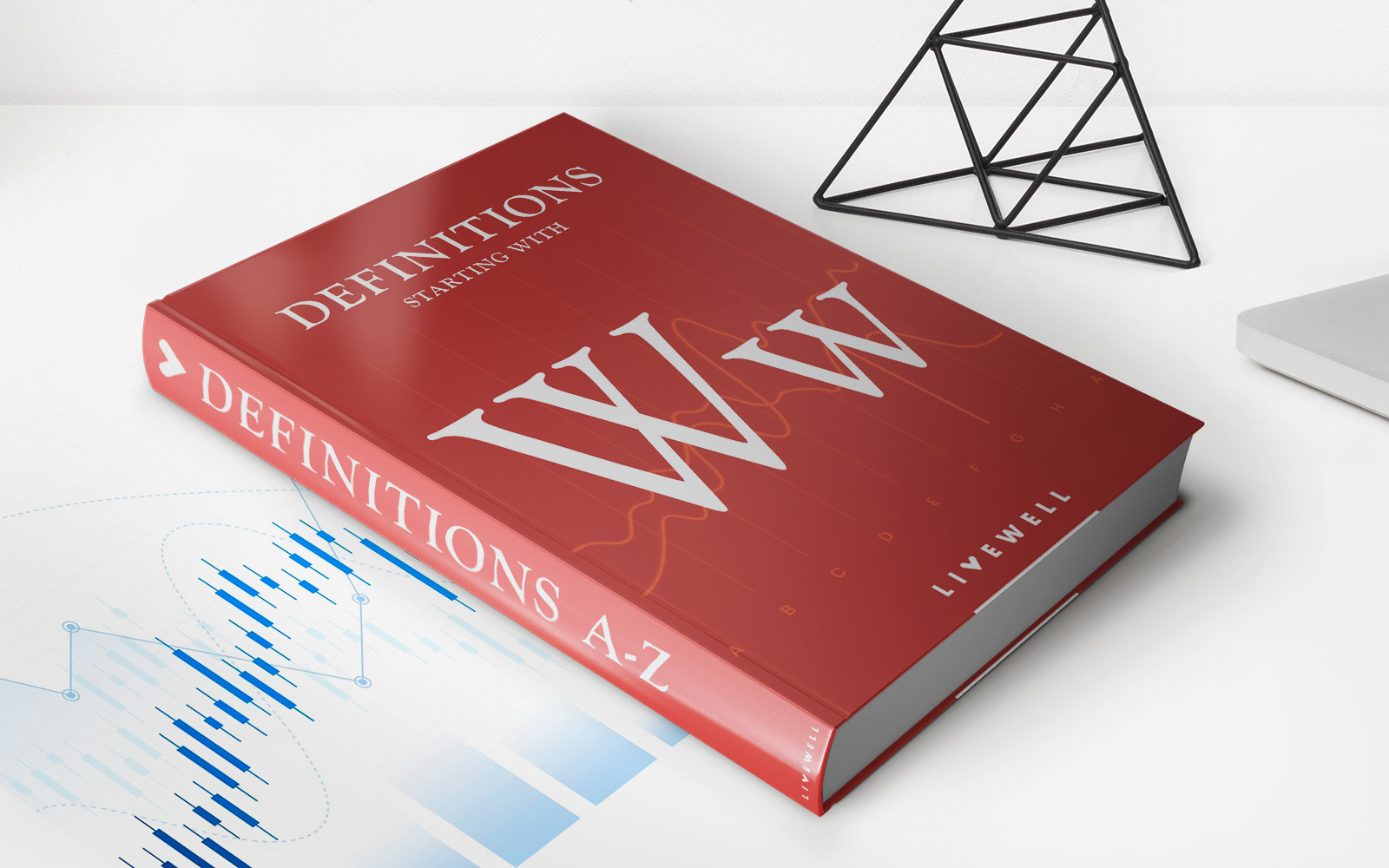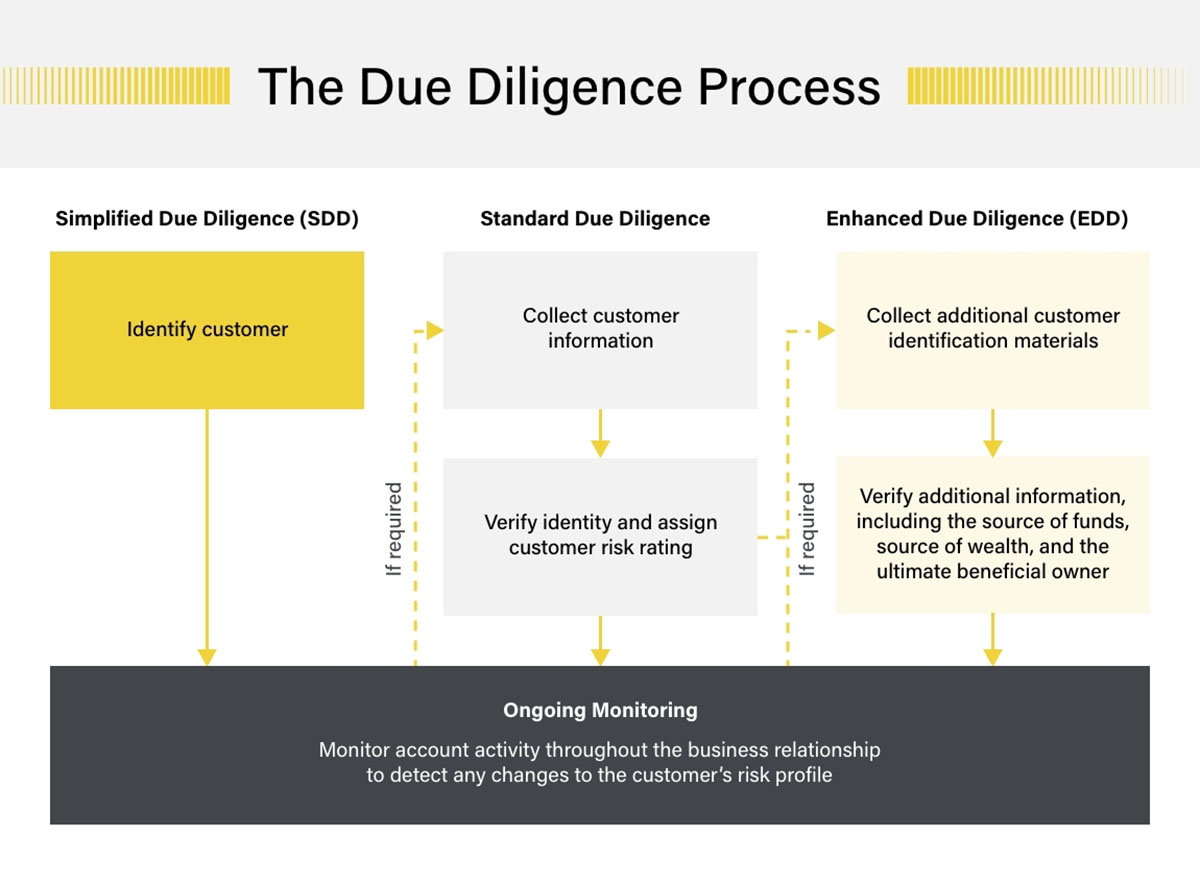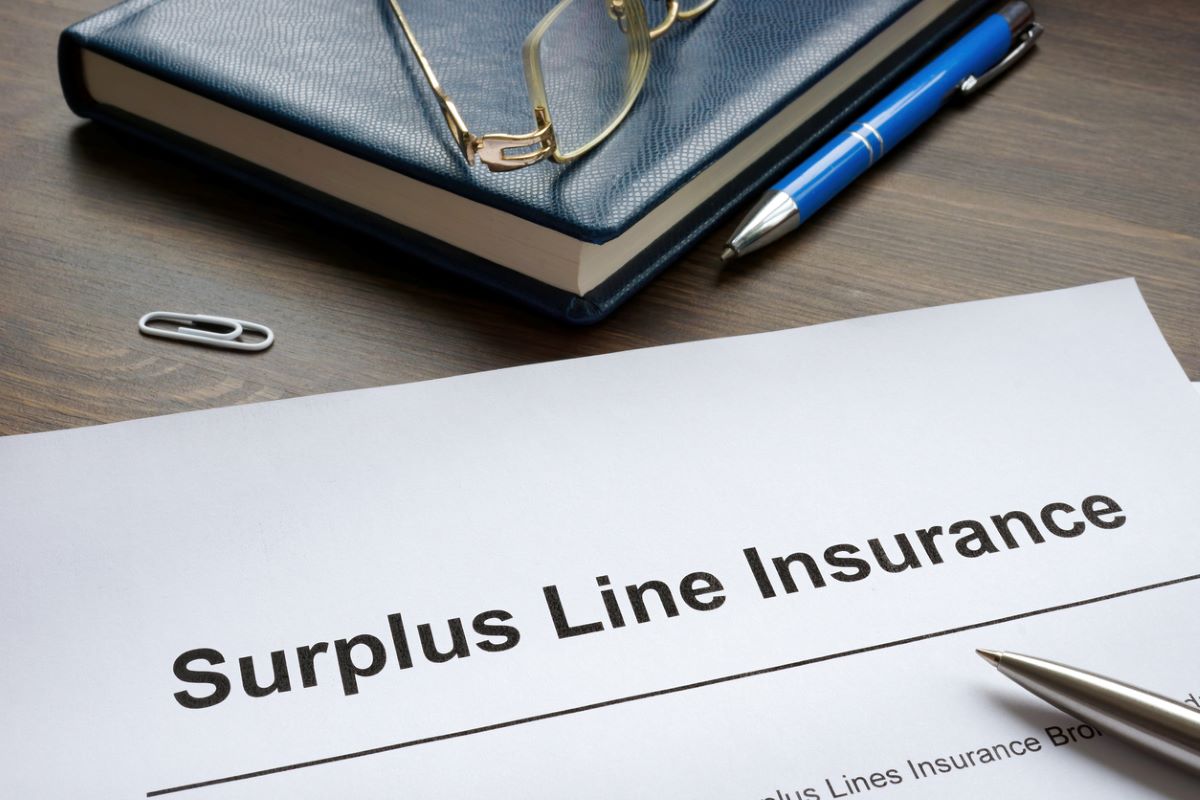

Finance
What Are Surplus Lines Of Insurance?
Published: November 20, 2023
Learn about surplus lines of insurance in the finance industry and discover how they provide coverage for unique risks not typically covered by standard insurance policies.
(Many of the links in this article redirect to a specific reviewed product. Your purchase of these products through affiliate links helps to generate commission for LiveWell, at no extra cost. Learn more)
Table of Contents
- Introduction
- Understanding the Basics of Surplus Lines Insurance
- How Surplus Lines Insurance Differs from Standard Insurance
- Reasons for Purchasing Surplus Lines Insurance
- The Process of Obtaining Surplus Lines Insurance
- Regulation and Compliance in the Surplus Lines Insurance Market
- Key Considerations for Insureds and Insurance Brokers
- The Benefits and Drawbacks of Surplus Lines Insurance
- Frequently Asked Questions about Surplus Lines Insurance
- Conclusion
Introduction
Welcome to the world of surplus lines insurance – a specialized sector within the insurance industry that caters to unique risks and coverage needs. Unlike traditional insurance policies, surplus lines insurance provides coverage for hard-to-place risks that are often considered too risky or unconventional for standard insurance carriers to underwrite.
In this article, we will delve into the fundamentals of surplus lines insurance, including how it differs from standard insurance, the reasons for purchasing surplus lines insurance, and the process of obtaining this type of coverage. We will also explore the regulatory landscape surrounding surplus lines insurance and highlight key considerations for insureds and insurance brokers.
If you’re a business owner or an individual with unique insurance needs, understanding the ins and outs of surplus lines insurance can help ensure that you have the right coverage in place to protect yourself, your assets, and your financial future.
So, let’s dive into this fascinating corner of the insurance industry and discover why surplus lines insurance may be the right choice for you.
Understanding the Basics of Surplus Lines Insurance
Surplus lines insurance, also known as non-admitted insurance, is a type of coverage that fills the gap when traditional insurance carriers are unwilling or unable to provide coverage for certain risks. This niche market allows insureds to obtain insurance for unique or high-risk exposures that fall outside the scope of standard insurance policies.
Surplus lines insurance is typically provided by non-admitted insurance companies, which are not licensed and regulated by the state in the same way as admitted carriers. Instead, they operate under the jurisdiction of the state’s surplus lines laws, which allow them to underwrite risks that do not meet the requirements of traditional insurance carriers.
Unlike standard insurance policies that are mass-produced and available to the general public, surplus lines insurance is tailored to the specific needs of individual insureds. It offers a flexible and customized approach to coverage, allowing insureds to obtain insurance for risks that are considered too complex, high-value, or unusual for standard carriers to handle.
One of the core characteristics of surplus lines insurance is the concept of the “surplus lines market.” This market consists of insurance brokers and intermediaries who specialize in connecting insureds with non-admitted insurance companies that are willing to underwrite their unique risks. These brokers act as the middlemen, navigating the complexities of the surplus lines market and providing insureds with access to the specialized coverage they require.
It’s important to note that because surplus lines insurance is not backed by the state’s guaranty fund, there is a greater degree of risk associated with this type of coverage. In the event that an insurer becomes insolvent, insureds may not have the same level of protection or recourse as they would with an admitted insurance carrier. Therefore, careful consideration should be given to the financial stability and reputation of the surplus lines insurer before entering into a policy.
Now that we have a foundational understanding of what surplus lines insurance is, let’s explore how it differs from standard insurance policies in the next section.
How Surplus Lines Insurance Differs from Standard Insurance
Surplus lines insurance sets itself apart from standard insurance policies in several key ways. These differences stem from the unique nature of the risks covered and the regulatory framework surrounding surplus lines insurance.
Firstly, surplus lines insurance is designed to cover risks that are considered non-standard or hard-to-place. These risks may include specialized industries, high-risk activities, or unique property values. Standard insurance carriers often have strict underwriting guidelines and may decline coverage for these types of risks due to their complexity or perceived level of risk. Surplus lines insurance steps in to fill this void, offering tailored coverage solutions for such risks.
Another key distinction is the regulatory environment in which surplus lines insurance operates. While standard insurance carriers are licensed and regulated by state insurance departments, surplus lines insurers are considered non-admitted and operate outside of this regulatory framework. Instead, they are subject to surplus lines laws and regulations that vary from state to state. This flexibility allows surplus lines insurers to underwrite risks that may not meet the requirements of admitted carriers, but it also means that insureds have less regulatory protection compared to standard insurance policies.
Additionally, the pricing and coverage terms of surplus lines insurance can differ significantly from standard insurance. Surplus lines insurers, being non-admitted, have greater flexibility in setting premium rates and coverage terms. They are not bound by the same rate regulations that govern admitted carriers. This means that premiums for surplus lines insurance policies may be higher or lower depending on the specific risk and market conditions. Additionally, surplus lines policies may offer broader or more specialized coverage options compared to standard policies.
Lastly, the claims process for surplus lines insurance can also vary from standard insurance. Insureds should be aware that some surplus lines policies may not offer the same level of claims handling and customer service as traditional insurance carriers. However, this can vary based on the specific surplus lines insurer and the broker through which the policy is obtained. It is important to work with reputable and experienced brokers who have relationships with reliable surplus lines insurers.
Understanding these differences between surplus lines insurance and standard insurance is crucial for insureds seeking specialized coverage or facing high-risk exposures. By recognizing the unique benefits and considerations of surplus lines insurance, individuals and businesses can make informed decisions about their insurance needs.
Reasons for Purchasing Surplus Lines Insurance
Surplus lines insurance offers a range of benefits and serves as a valuable option for individuals and businesses facing unique or hard-to-place risks. Let’s explore some of the key reasons why purchasing surplus lines insurance may be the right choice:
- Coverage for unconventional risks: Surplus lines insurance provides a solution for risks that fall outside the underwriting guidelines of standard insurance carriers. Whether it’s a high-risk activity, a specialized industry, or unique property value, surplus lines insurance can offer the necessary coverage.
- Flexible and tailored coverage: Unlike off-the-shelf insurance policies, surplus lines insurance allows for customized coverage. Insureds have the flexibility to negotiate specific coverage terms that address their unique needs, providing a higher level of protection and peace of mind.
- Access to specialized markets: Surplus lines insurance connects insureds with non-admitted insurance companies that specialize in underwriting unconventional risks. This opens doors to insurance markets that may have a deeper understanding of specific industries, resulting in more comprehensive and effective coverage options.
- Innovative solutions: Surplus lines insurers have the freedom to create innovative insurance products that address emerging risks and trends. This makes surplus lines insurance a preferred choice for businesses operating in dynamic and evolving industries, where traditional insurance offerings may not adequately cover the unique risks they face.
- Risk transfer and mitigation: Surplus lines insurance allows insureds to transfer and mitigate risks that are difficult to address through traditional insurance options. By securing the appropriate surplus lines coverage, businesses and individuals can protect their assets and minimize their exposure to financial losses.
It’s important to note that while surplus lines insurance offers many advantages, there are also some considerations to be mindful of. Surplus lines insurance is considered higher risk, as the insurers are non-admitted and not backed by the state’s guaranty fund in the event of insolvency. Additionally, premiums for surplus lines policies may be higher compared to standard insurance due to the specialized nature of the coverage. However, for those with unique and hard-to-place risks, the benefits typically outweigh the drawbacks, making surplus lines insurance a valuable option.
Whether you’re an individual looking to protect valuable assets or a business seeking coverage for specialized risks, exploring surplus lines insurance can provide the solution you need. By working with experienced insurance brokers who have access to a network of surplus lines insurers, you can navigate the surplus lines market and find the coverage that best suits your specific requirements.
The Process of Obtaining Surplus Lines Insurance
Obtaining surplus lines insurance involves a distinct process that differs from purchasing standard insurance policies. To navigate this specialized market and secure the coverage you need, it’s essential to understand the steps involved. Here’s an overview of the process of obtaining surplus lines insurance:
- Evaluate your insurance needs: Start by assessing the specific risks you need to cover. Identify any unique or hard-to-place risks that may require surplus lines insurance.
- Engage an insurance broker: Work with an experienced insurance broker who specializes in surplus lines insurance. They will have the knowledge and connections to navigate the surplus lines market and connect you with appropriate non-admitted insurers.
- Gather risk-related information: Provide the insurance broker with detailed information about your risk exposures. This may include documentation about your business operations, assets, and any previous claims history.
- Obtain quotes and coverage proposals: The insurance broker will approach surplus lines insurance companies on your behalf to obtain quotes and coverage proposals. These will outline the terms, conditions, and premium rates associated with the proposed coverage.
- Review and negotiate: Carefully review the quotes and proposals with your insurance broker. Discuss any concerns or modifications you may require and negotiate terms that align with your risk management strategy and budget.
- Secure the coverage: Once you and the insurance broker have chosen the most suitable surplus lines insurer and coverage, the broker will assist you in finalizing the policy. This may involve submitting required documentation, signing contracts, and paying the premium.
- Monitor and review: Regularly assess your insurance coverage to ensure it continues to meet your evolving needs. Stay in close communication with your insurance broker and consider conducting annual reviews to make any necessary adjustments or additions to your coverage.
While the process of obtaining surplus lines insurance may initially seem complex, working with an experienced insurance broker will streamline the process and provide you with the guidance you need. These brokers have expertise in navigating the surplus lines market and can help secure the right coverage for your unique risks.
By following this process and collaborating with a knowledgeable insurance broker, you can access the specialized coverage offered by surplus lines insurance and effectively manage your risk exposures.
Regulation and Compliance in the Surplus Lines Insurance Market
The surplus lines insurance market operates under a specific regulatory framework to ensure transparency, consumer protection, and the stability of the market. Although surplus lines insurers are non-admitted and operate outside of the traditional insurance regulatory structure, they are still subject to regulations and compliance requirements specific to the surplus lines market. Let’s explore the key aspects of regulation and compliance in the surplus lines insurance market:
Licensing and eligibility: Surplus lines insurers must meet specific criteria to operate in the surplus lines market. This includes obtaining proper licenses and adhering to eligibility requirements set forth by individual state insurance departments. These requirements may vary from state to state, but they typically involve demonstrating financial stability, maintaining adequate reserves, and meeting other regulatory standards.
Surplus Lines Laws: Surplus lines insurance is governed by state surplus lines laws, which outline the rules and regulations that apply to surplus lines transactions. These laws generally require policyholders to work with licensed surplus lines brokers and ensure that coverage is sought from non-admitted insurers only when standard insurance carriers decline to provide coverage. Surplus lines laws also address reporting requirements, licensing fees, and transactional procedures.
State Insurance Departments: While surplus lines insurers operate outside the traditional insurance regulatory structure, state insurance departments continue to play a role in overseeing surplus lines insurance activities. They typically require surplus lines insurers to submit regular reports, maintain financial records, and adhere to certain compliance standards. State insurance departments aim to protect policyholders and ensure the financial stability of surplus lines insurers operating in their respective states.
Compliance with Disclosure Requirements: To ensure transparency and informed decision-making, surplus lines insurance policies often require certain disclosures to be made to policyholders. These disclosures may include information about the non-admitted status of the insurer, potential coverage limitations, and the absence of guaranty fund protection. Policyholders should carefully review these disclosures and consult with their insurance broker to fully understand the terms and conditions of the coverage they are obtaining.
Recordkeeping and Reporting: Surplus lines insurers must maintain appropriate records and submit regular reports to state insurance departments, as required by surplus lines laws. These records and reports help ensure compliance with regulatory requirements and enable state authorities to monitor the activities of surplus lines insurers operating within their jurisdiction.
It’s important for insureds and insurance brokers to be aware of the regulatory and compliance aspects of the surplus lines insurance market. By working with reputable insurers and licensed brokers, insureds can ensure that they are operating within the boundaries of the regulatory framework, accessing reliable coverage, and securing protection for their unique risks.
Key Considerations for Insureds and Insurance Brokers
Both insureds and insurance brokers involved in the surplus lines insurance market must take certain key considerations into account to ensure a successful and well-informed insurance transaction. Let’s explore some of these considerations:
Expertise and Experience: Insureds should engage the services of experienced and knowledgeable insurance brokers who specialize in surplus lines insurance. These brokers understand the unique complexities of the surplus lines market, have established relationships with non-admitted insurers, and can guide insureds toward the most suitable coverage options.
Financial Stability of Insurers: Prior to obtaining surplus lines insurance, insureds and insurance brokers should assess the financial stability and reputation of the surplus lines insurers. This involves reviewing the insurer’s financial disclosures, credit ratings, and claims-paying history. Working with financially secure surplus lines insurers helps ensure that claims will be paid in the event of covered losses.
Proper Risk Assessment: Insureds must provide accurate and detailed information about their risk exposures to insurance brokers. This allows brokers to present the insured’s risks to surplus lines insurers and obtain the most appropriate coverage options. Insureds should disclose any material facts or changes in their risk profile to their insurance brokers to avoid potential coverage gaps or claims denials.
Transparency and Disclosures: Insurance brokers have a duty to provide insureds with full and transparent information about surplus lines insurance. This includes explaining the non-admitted status of the insurer, potential coverage limitations, and the absence of guaranty fund protection. Insureds should carefully review all disclosures and seek clarification from their insurance broker before making any decisions.
Claims Handling and Customer Service: Insureds should understand the claims handling process of the surplus lines insurer and the support provided by the insurance broker in managing claims. It is crucial to review the claims settlement track record of the insurer and examine the customer service reputation of both the insurer and the broker.
Compliance with Regulatory Requirements: Insurance brokers must ensure compliance with state surplus lines laws and regulatory requirements. They should maintain up-to-date licenses, fulfill reporting obligations, and keep informed about any changes or updates to the regulatory landscape. This ensures that insureds are transacting with compliant surplus lines insurers and brokers.
For both insureds and insurance brokers, staying informed, conducting thorough due diligence, and fostering strong relationships with reputable surplus lines insurers are essential to successful transactions in the surplus lines insurance market. By working together and considering these key factors, insureds can obtain the specialized coverage they need, and insurance brokers can provide valuable guidance and support throughout the process.
The Benefits and Drawbacks of Surplus Lines Insurance
Surplus lines insurance offers unique benefits and advantages for insureds facing challenging risks and coverage needs. However, it is important to consider both the benefits and drawbacks before deciding to purchase surplus lines insurance. Let’s explore these factors:
Benefits of Surplus Lines Insurance:
- Coverage for Hard-to-Place Risks: Surplus lines insurance provides coverage for risks that are considered too complex, high-risk, or unconventional for standard insurance carriers. It offers a solution for insureds facing unique exposures and allows them to obtain the necessary protection.
- Flexible and Tailored Coverage: Surplus lines insurance policies can be customized to meet the specific needs of insureds. This allows for greater flexibility in coverage terms and can address risks that are not adequately covered by standard insurance offerings.
- Access to Specialized Markets: Surplus lines insurance connects insureds with non-admitted insurance companies that specialize in underwriting unique risks. This offers insureds access to expertise and specialized coverage options that may not be available in the traditional insurance market.
- Innovative Solutions: Surplus lines insurers have the freedom to develop innovative insurance products to address emerging risks or industry-specific needs. This flexibility allows insureds to obtain coverage that aligns with their evolving risk landscape.
- Risk Transfer and Mitigation: Surplus lines insurance allows insureds to transfer and mitigate risks that are difficult to address through standard insurance options. By securing appropriate surplus lines coverage, insureds can protect their assets and minimize potential financial losses.
Drawbacks of Surplus Lines Insurance:
- Greater Risk and Lack of State Guaranty Fund Protection: Surplus lines insurance exposes insureds to a higher level of risk compared to standard insurance. Surplus lines insurers are non-admitted and, in the event of insolvency, insureds may not have the same level of protection or recourse as they would with admitted insurance carriers.
- Potential Higher Premiums: Surplus lines insurance premiums may be higher compared to standard insurance due to the specialized nature of the coverage, the unique risks involved, and the flexibility in setting premium rates by non-admitted insurers.
- Claims Handling and Customer Service Variances: Surplus lines insurers may not always provide the same level of claims handling and customer service as traditional insurance carriers. Insureds should carefully evaluate the claims settlement track record and customer service reputation of the surplus lines insurer before making a decision.
- Regulatory Considerations: The regulatory environment for surplus lines insurance differs from that of standard insurance. Insureds need to understand the regulatory framework and ensure compliance with state surplus lines laws to transact legitimately in the surplus lines market.
When considering surplus lines insurance, it is crucial for insureds to weigh the benefits against the drawbacks and make an informed decision based on their specific risk profile and coverage requirements. Working with experienced insurance brokers who specialize in surplus lines insurance can help insureds navigate the complexities of the market and make the right choices regarding their insurance needs.
Frequently Asked Questions about Surplus Lines Insurance
As surplus lines insurance is a specialized sector within the insurance industry, it’s natural to have questions about how it works and what it entails. Here are some common questions and answers about surplus lines insurance:
- What is surplus lines insurance?
Surplus lines insurance is coverage provided by non-admitted insurance companies for risks that are considered too complex or unconventional for standard insurance carriers to underwrite. It fills the gap when traditional carriers are unwilling or unable to provide coverage.
- How does surplus lines insurance differ from standard insurance?
Surplus lines insurance differs from standard insurance in that it covers hard-to-place risks, operates outside the traditional insurance regulatory framework, and offers tailored coverage for unique exposures. Surplus lines insurance also provides flexibility in premium rates and coverage terms.
- Why would someone choose surplus lines insurance?
Insureds may choose surplus lines insurance to obtain coverage for specialized industries, high-risk activities, or unique property values. Surplus lines insurance offers customized coverage options, access to specialized markets, and innovative solutions for evolving risks.
- Who can purchase surplus lines insurance?
Surplus lines insurance is typically purchased by businesses and individuals who have risk exposures that fall outside the scope of standard insurance policies. It is often obtained through the services of licensed insurance brokers who specialize in surplus lines coverage.
- Is surplus lines insurance regulated?
Yes, surplus lines insurance is regulated by state surplus lines laws. While surplus lines insurers are non-admitted, they must still meet eligibility requirements and adhere to specific regulations to operate in the surplus lines market.
- Are surplus lines insurers financially stable?
Surplus lines insurers vary in terms of financial stability. It is important for insureds to review the financials, credit ratings, and claims-paying history of surplus lines insurers before securing coverage. Working with reputable and financially secure insurers is crucial for protection in the event of a claim.
- What should I consider when choosing a surplus lines insurance policy?
When choosing a surplus lines insurance policy, consider factors such as the insurer’s financial stability, reputation, claims handling process, customer service, and the terms and conditions of the coverage. Working with experienced insurance brokers who have expertise in surplus lines can greatly assist in finding the most suitable policy.
- How do I obtain surplus lines insurance?
To obtain surplus lines insurance, work with an experienced insurance broker who specializes in surplus lines coverage. The broker will assess your risk exposures, gather necessary information, obtain quotes from surplus lines insurers, and guide you through the policy selection and placement process.
- Can I switch from surplus lines insurance to standard insurance?
In some cases, insureds may eventually be able to switch from surplus lines insurance to standard insurance as their risks become more acceptable to traditional carriers. This could be due to changes in the risk profile, industry developments, or other factors that make the risk more insurable by admitted carriers.
If you have any additional questions about surplus lines insurance, it is recommended to consult with an experienced insurance broker who can provide personalized guidance based on your specific needs and circumstances.
Conclusion
Surplus lines insurance serves as a valuable solution for individuals and businesses facing unique and hard-to-place risks. It offers tailored coverage options, access to specialized markets, and flexibility that may not be available through standard insurance carriers. Throughout this article, we have explored the basics of surplus lines insurance, its differences from standard insurance, the process of obtaining coverage, and the regulatory landscape surrounding this sector.
While surplus lines insurance provides numerous benefits, it is important to consider the potential drawbacks, such as the higher risk associated with non-admitted insurers and the need for diligent due diligence when selecting policies and insurers. Working with experienced insurance brokers who specialize in surplus lines coverage can help insureds navigate the complexities of the market and make well-informed decisions.
Whether you’re an individual with unique insurance needs or a business operating in a specialized industry, surplus lines insurance offers a tailored and flexible approach to coverage. It bridges the gap between standard insurance and hard-to-place risks, ensuring that you have appropriate protection in place, even in unconventional circumstances.
Remember to conduct a thorough assessment of your risk exposures, engage the services of reputable insurance brokers, and carefully review all policy terms and conditions before making a final decision. With careful consideration and expert guidance, surplus lines insurance can provide the coverage you need to protect your assets, mitigate risks, and secure your financial future.




